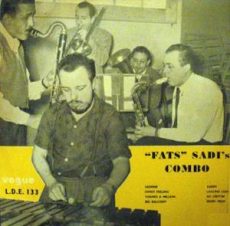
Daily Dose Of Jazz…
Sadi Pol Lallemand was born on October 23, 1927 in Andenne, Belgium. His first instrument was the xylophone, which he played in a circus in the 1930s. After World War II, he turned professional playing the vibraphone and performed with Bobby Jaspar in the Bob Shots, then with Don Byas.
Moving to Europe he lived in Paris, France from 1950 to 1961 where he played with Aimé Barelli, Django Reinhardt, and Martial Solal. In the Sixties, Fats moved to Brussels, Belgium and was a member of Kenny Clarke/Francy Boland Big Band.
He worked for RTBF, the TV channel of the French Community in Belgium. Sadi led both a quartet and nonet, and won the Belgian Golden Django for best French-speaking artist in 1996.
Vibraphonist, percussionist, vocalist and composer Fats Sadi, who chose the name “Sadi” because he disliked his last name, which means “the German” in French, transitioned on February 20, 2009 in Huy, Belgium.
More Posts: composer,history,instrumental,jazz,music,percussion,vibraphone,vocal
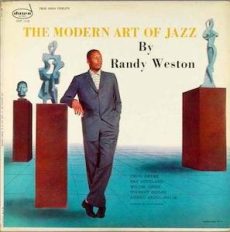
Daily Dose Of Jazz…
William Jones Jr. was born October 20, 1929 in New York City, New York and mainly taught himself to play the drums, and played left handed. He performed and recorded with pianist Thelonious Monk in 1953, making his debut on the album Thelonious Monk and Sonny Rollins. Two years later he appeared with Monk on The Tonight Show.
He went on to become a sideman for another recording in 1955 on pianist Elmo Hope’s Meditations and with Randy Weston on his The Modern Art of Jazz by Randy Weston in the following year. Jones also played with Kenny Dorham, J. J. Johnson, Charlie Parker, and Cecil Payne in the mid-1950s.
In 1955–56 Jones was part of Charles Mingus’ Jazz Workshop, and was the drummer in the bassist’s band that recorded Pithecanthropus Erectus, which helped develop a freer form of group improvisation. Willie was tenor saxophonist Lester Young’s drummer from late 1956 to early 1959. In 1961, he played on Sun Ra’s The Futuristic Sounds of Sun Ra.
He went into obscurity after this recording session and his date of death was taken from social security records.
More Posts: drums,history,instrumental,jazz,music
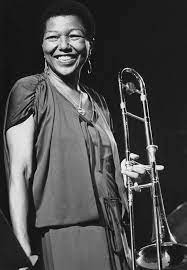
Three Wishes
While in conversation with Melba Liston, girl talk turned to the granting of three wishes and she told Pannonica that she would wish for:
- “One thing I’m concerned about is the youth music program. Kids don’t have the opportunity they should have – kids with talent, I mean. There’s an awful lot of talking, but not enough doing. There should be a workshop, or a place where they’d have a chance to learn something besides rock “n’ roll. I would love to be able to do something about that.”
- “The other things are personal…. I wish I had lots of money.”
- “I wish I had equal opportunity according to energy, ability, and desire. And sex. Mainly sex.”
*Excerpt from Three Wishes: An Intimate Look at Jazz Greats ~ Compiled and Photographed by Pannonica de Koenigswarter
More Posts: arranger,baroness,composer,history,instrumental,jazz,music,pannonica,three,trombone,wishes
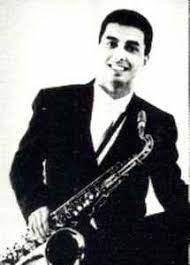
Three Wishes
Richie Kamuca was hanging out with Nica when she inquired what three things he would wish for if given and he responded with:
- “I guess I’d like people to like what I play.”
- “I’d like people to like the way I play! I can’t think of anything else I’d like, man. That’s all I can wish for, baby! What else is there?”
*Excerpt from Three Wishes: An Intimate Look at Jazz Greats ~ Compiled and Photographed by Pannonica de Koenigswarter
More Posts: baroness,history,instrumental,jazz,music,pannonica,saxophone,three,wishes
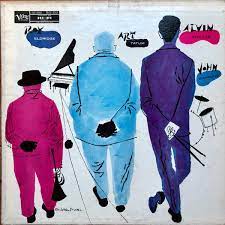
Daily Dose Of Jazz…
Alvin Stoller was born October 7, 1925 in New York City, New York and studied with drum teacher Henry Adler. He launched his career touring and recording with swing era big bands led by Benny Goodman, Tommy Dorsey, Harry James, and Charlie Barnet. He backed singers including Billie Holiday, Mel Tormé, and Frank Sinatra on some of their major recordings.
His drums may be heard on many of Ella Fitzgerald’s Songbook recordings; on Ella Fitzgerald Sings the Duke Ellington Songbook, having performed with the Duke Ellington orchestra itself, alongside Ellington’s own Sam Woodyard. From the moment Frank Sinatra started to record with Capitol Records in 1953, Stoller was the singer’s preferred percussionist and performed on nearly all Sinatra recordings until 1958.
He recorded with Art Tatum, Roy Eldridge, Oscar Peterson, Coleman Hawkins, Ben Webster, Benny Carter, Herb Ellis, and Erroll Garner among many other jazz musicians. The 1950s saw Stoller settlling in Los Angeles, California where he became respected for his work in the Hollywood studios which lasted for several decades.
Leonard Feather considered him a first-rate, swinging drummer. Buddy Rich, whom some consider to have been the greatest of all jazz drummers, chose Alvin to play drums on an album in which Rich sang suggests the esteem Stoller earned from his fellow musicians. He was the drummer on both Mitch Miller’s recording of The Yellow Rose of Texas and Stan Freberg’s parody of Miller’s recording.
Drummer Alvin Stoller, though an in-demand drummer during the Forties and Fifties and recorded more than five dozen albums, and eventually appeared to have been largely forgotten, transitioned on October 19, 1992.
More Posts: drums,history,instrumental,jazz,music



